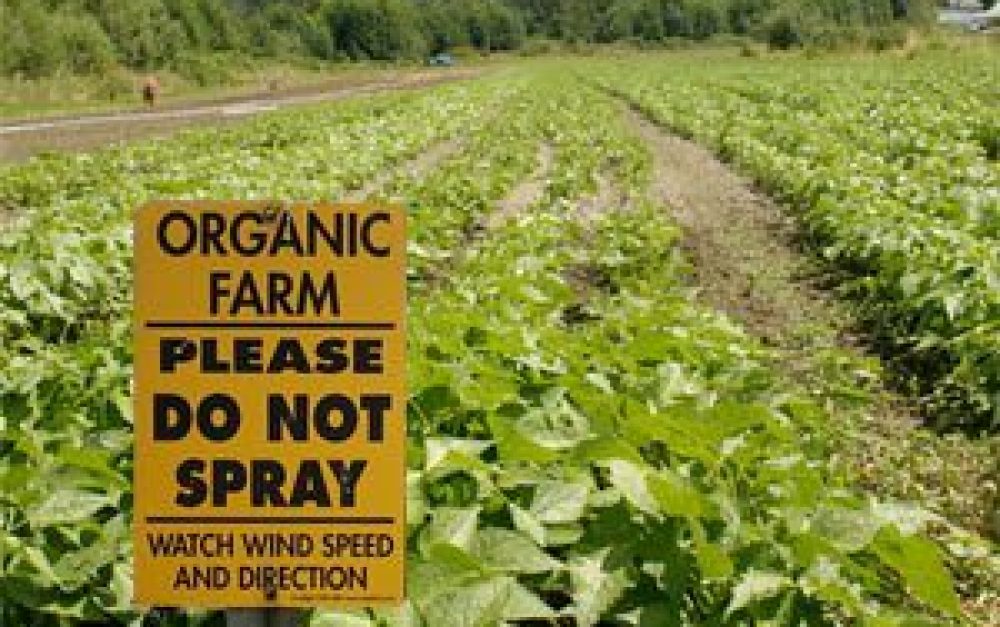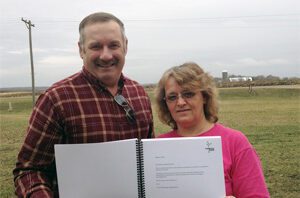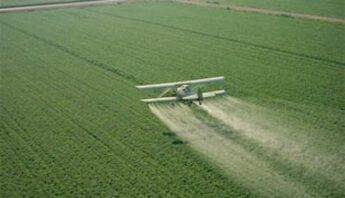The Supreme Court of Minnesota recently issued a disappointing ruling on the legal rights of organic farmers faced with pesticide drift from neighboring farms.
As we reported some months ago, Oluf and Debra Johnson went to the courts when they lost their organic certification (and their crops) due to pesticide drift. They were looking for compensation for these losses, as well as future protection from pesticides drifting onto their farm. An appeals court had ruled favorably on their case — so the Johnsons were hoping for good news from the Supreme Court. Instead, the ruling severely limits potential compensation, and threatens organic enforcement standards across the state.
While the Johnsons' case is not over yet, the state court handed them two major setbacks. First, the court ruled pesticide drift cannot be considered trespass because it is an "intangible" substance. Second, the justices found that organic produce contaminated with pesticide drift may still be considered organic.
Stone age science
By ruling against pesticide drift as a form of trespass, the Supreme Court missed a huge opportunity to provide a defensive tool for farmers and rural families who are effected by pesticides. It's often difficult to prove how specific instances of pesticide drift impact health or crop loss. With the concept of "trespass," the violation is the simple presence of pesticides, so you don't need to prove a particular impact to receive compensation.
Almost as upsetting is the justification used by the Supreme Court for this decision. They relied on an outdated form of legal reasoning that predates microscopic science to say, essentially, that because we can't see pesticide drift with the naked eye, it is "intangible" and can't be considered trespass. This reasoning seems particularly suspect given that the court cites in their decision tests conducted by the Minnesota Department of Agriculture documenting the presence of drift on the Johnsons' farm.
Eroding organic quality
Beyond the "trespass" issue, the Supreme Court also limited the state's authority to effectively regulate organic produce. This harms both consumers and organic farmers, since consumer confidence in certification programs is key to growing the market for organic produce.
EPA has an organic standard that disqualifies any produce with a specific chemical residue surpassing 5% of a set EPA limit. The Minnesota Supreme Court used this rule to say that any produce that passes the 5% test could continue to be certified organic, taking away discretion from certifiers to use other, more stringent standards when determining organic certification.
According to the Johnsons' lawyer, Arlo H. Vande Vegte,
There will be a bunch of organic farmers who will say, 'I have drift, but you can't decertify me.' Which means that there will be more and more pesticides in organic products.
While courts continue to move back and forth regarding trespass, policymakers should be stepping up. National rules should more carefully evaluate how newly proposed pesticides drift, and EPA should put stronger rules in place to control drift-prone pesticides that are already on the market.
At the state level, legislators can press for laws that better protect small farmers and rural families from pesticide drift. Such rules would go a long way toward helping farmers like Oluf and Debra Johnson, whose livelihood is very much at stake.








